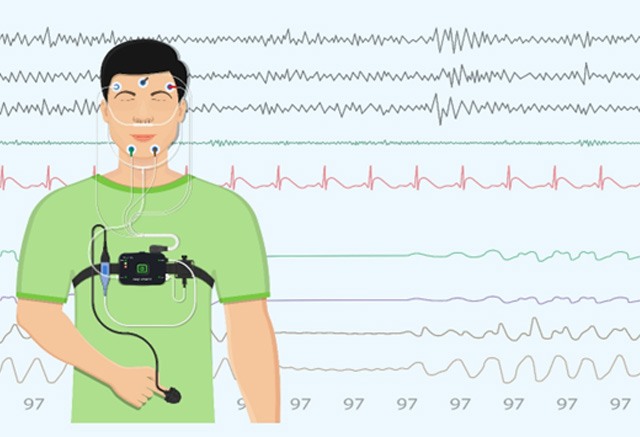Sleep Testing for Obstructive Sleep Apnea – Tulsa, OK
Your First Step Towards Restful Sleep

If you are experiencing symptoms that could indicate that you have obstructive sleep apnea, it’s important to undergo testing to get a formal diagnosis from a professional. This way, we can help you by discussing treatment options and getting started with them as soon as we can. If you believe it’s time for you to undergo sleep testing for obstructive sleep apnea, or you’d like to learn more, don’t hesitate to contact us at our office in Tulsa.
Reasons Why I Need a Sleep Test

If you have obstructive sleep apnea, chances are that you are dealing with one or more unpleasant symptoms. If you notice any of the following signs, it may be a good idea to discuss sleep testing with us:
- Daytime fatigue
- Drowsiness
- Gasping when waking
- Insomnia
- Mood swings
- Depression
- Restless leg syndrome
- Forgetfulness
- Headaches
We can discuss your symptoms and whether a sleep test could be something that you benefit from. There are two different types of sleep tests: In-Lab and Take-Home.
How an In-Lab Sleep Test Works

Oftentimes, sleep testing is performed in a hospital or sleep laboratory. Various devices will be attached to you and then you will sleep in the facility. This way, your brain and body activity will be monitored as you sleep. This data is reviewed so it can be determined if you have obstructive sleep apnea. When you complete an in-lab test, the lab technicians will connect all of the devices, so you don’t need to worry about setting anything up yourself.
How a Take-Home Sleep Test Works

This is a simplified version of a sleep study used to diagnose sleep apnea. The great thing about this type of test is that you can be comfortable in your own bed instead of in a lab. There are also fewer cords and devices to use, making the process more comfortable for some patients. The at-home sleep testing process will involve wearing a specialized device with sensors to monitor several different things as you sleep. It measures oxygen saturation, heart rate, airflow, and movement in your chest and abdomen. The patterns will be reviewed so we can determine if you have sleep apnea.
